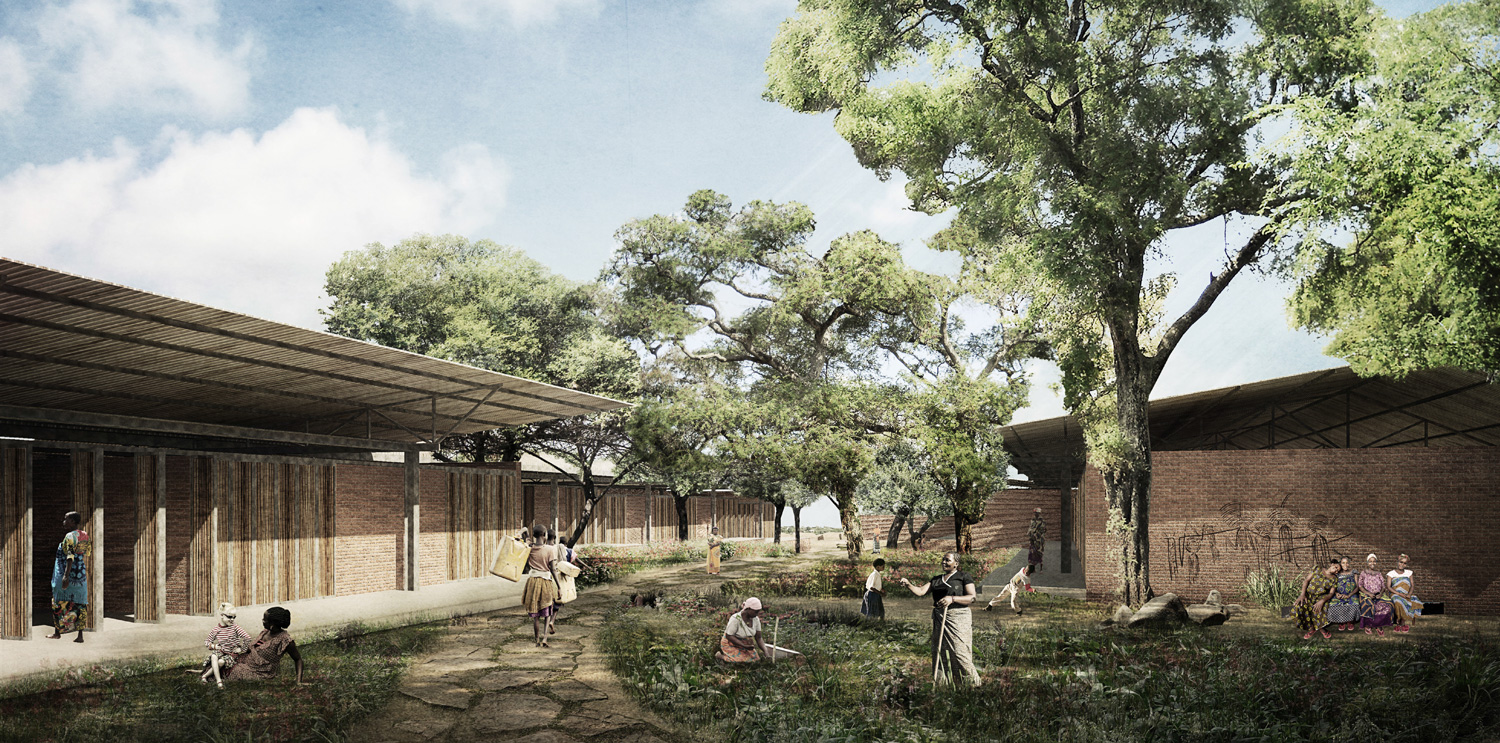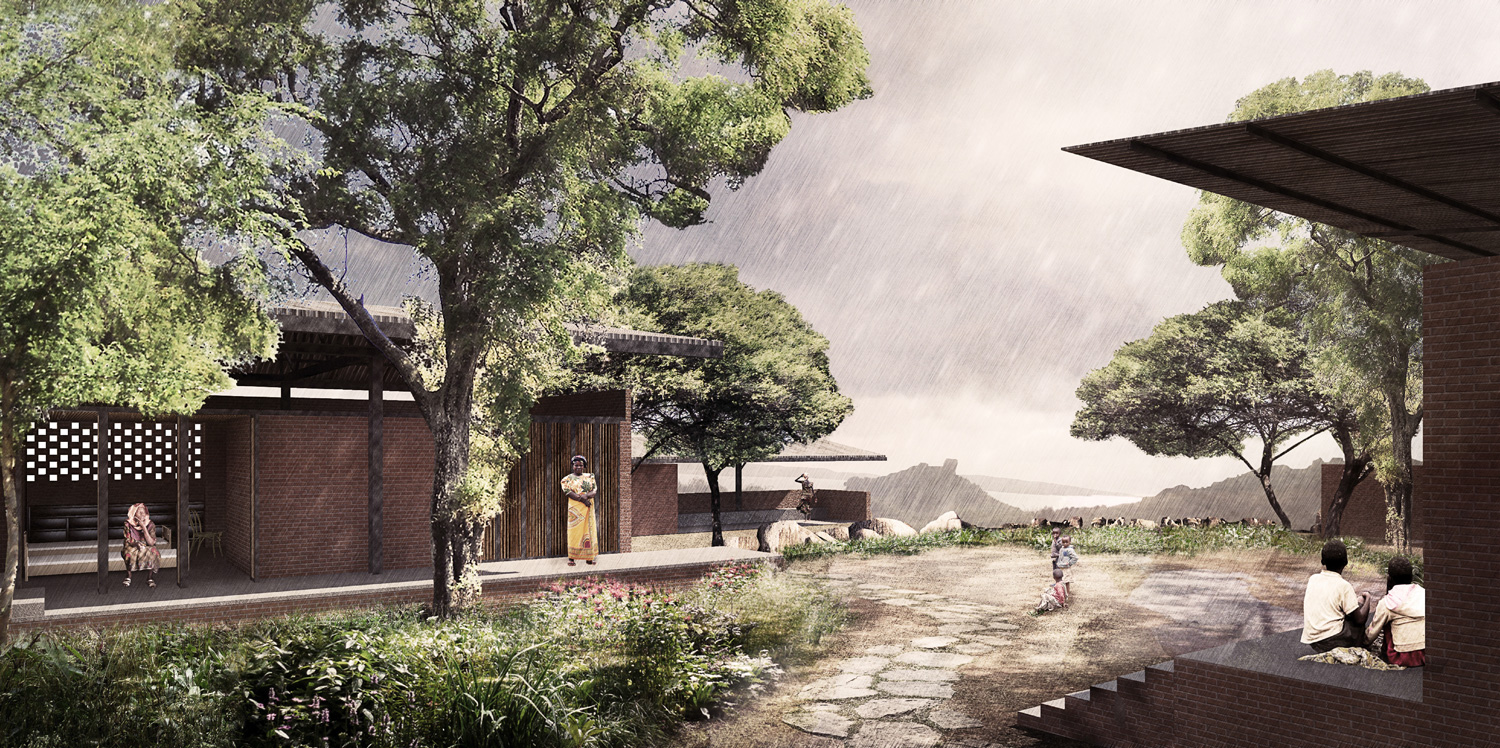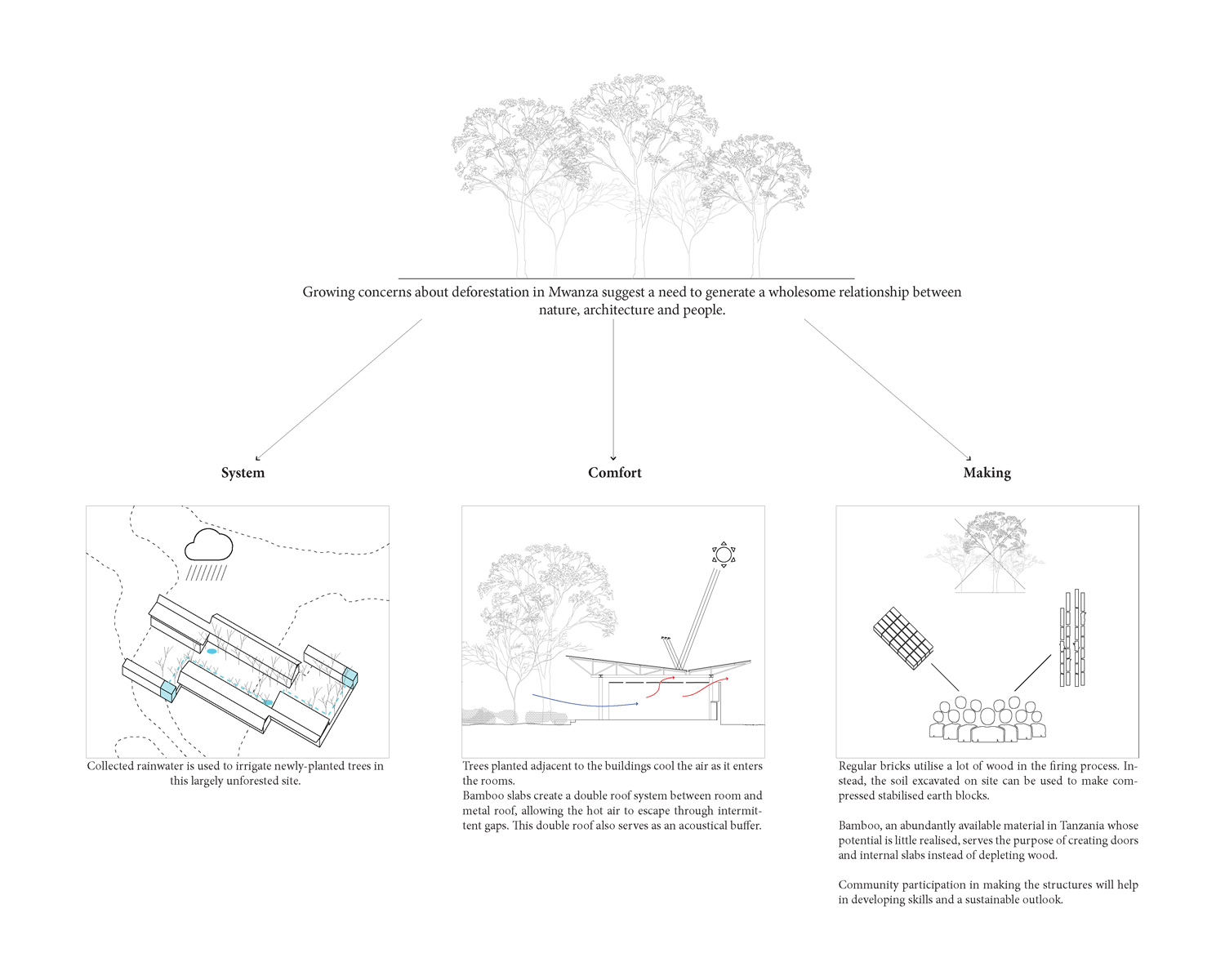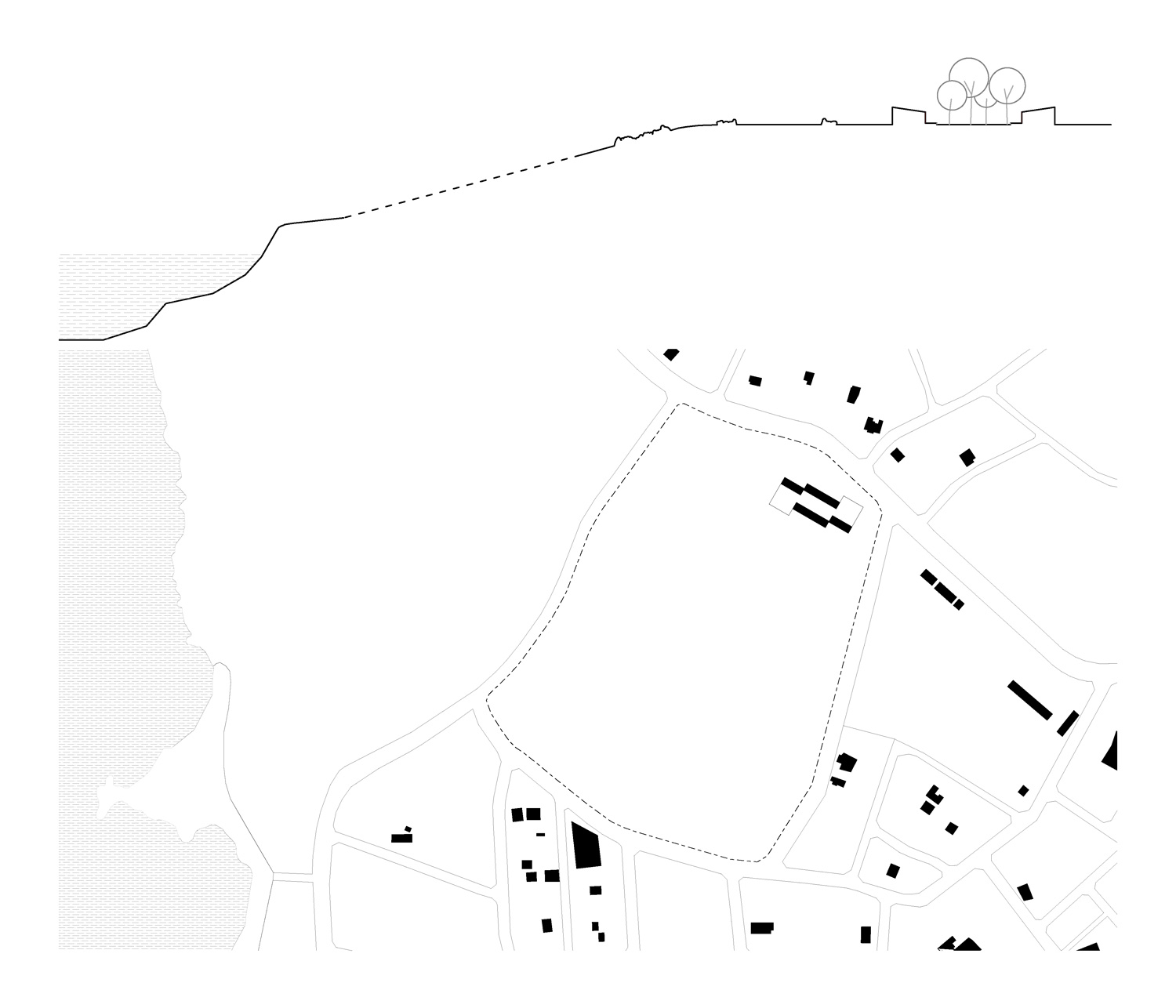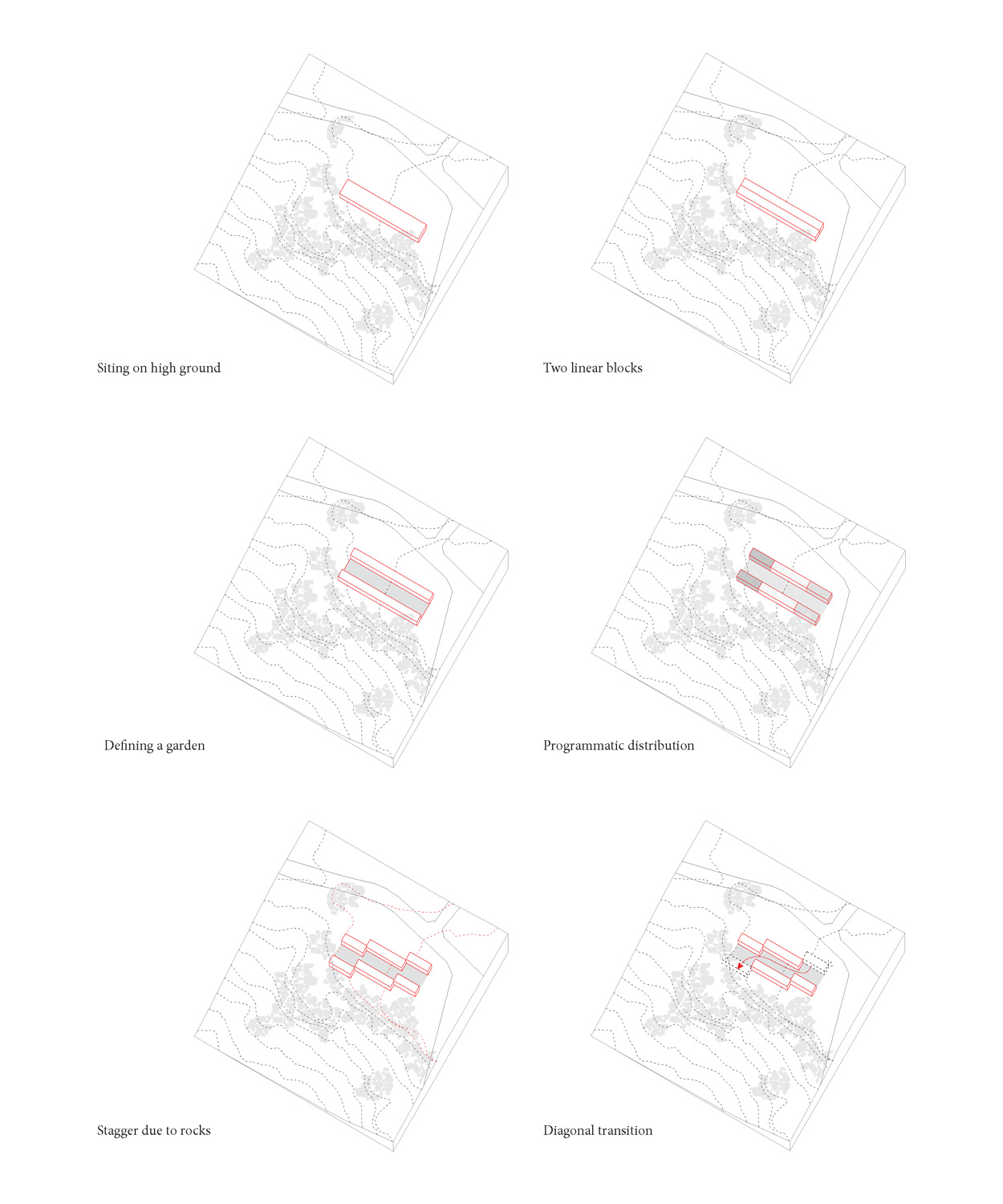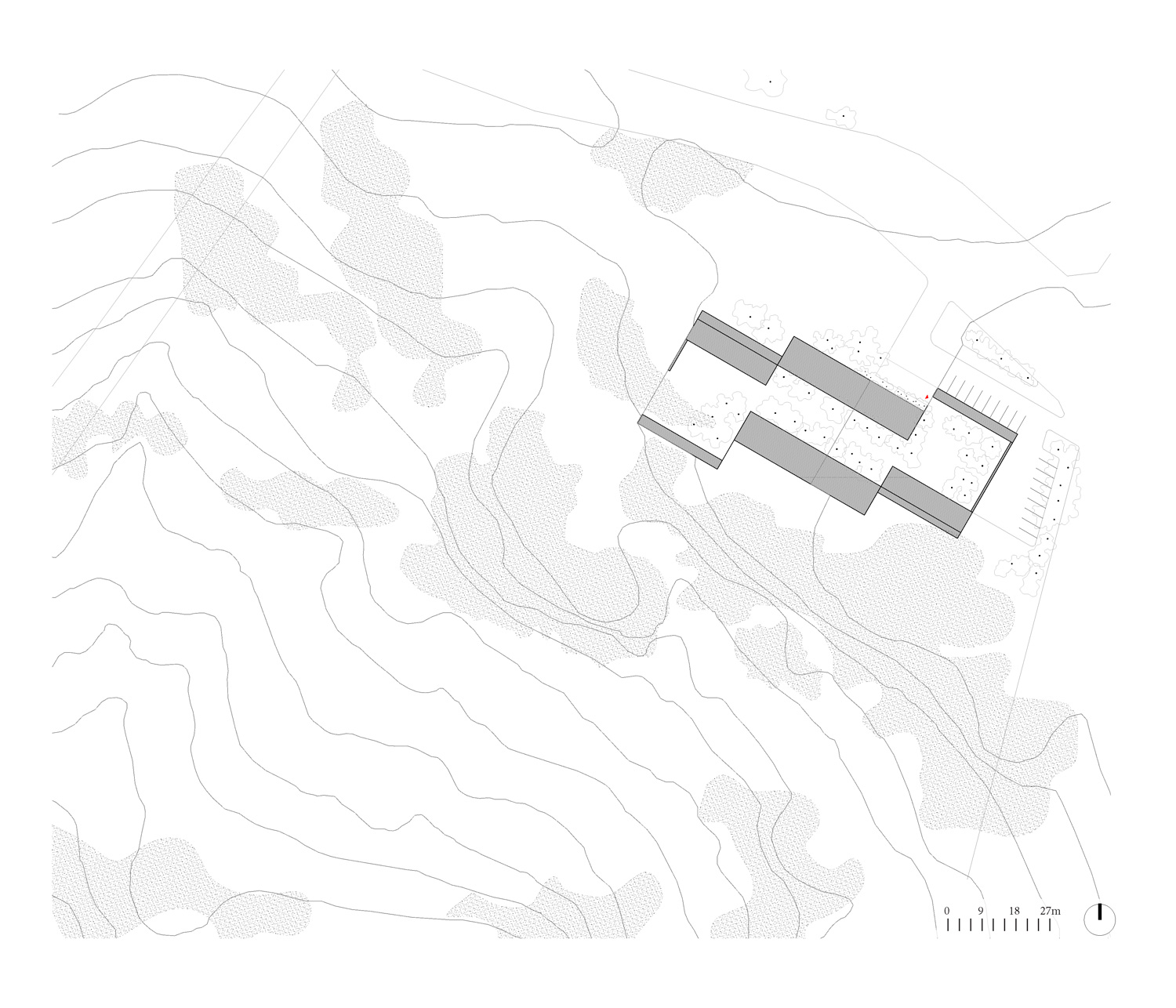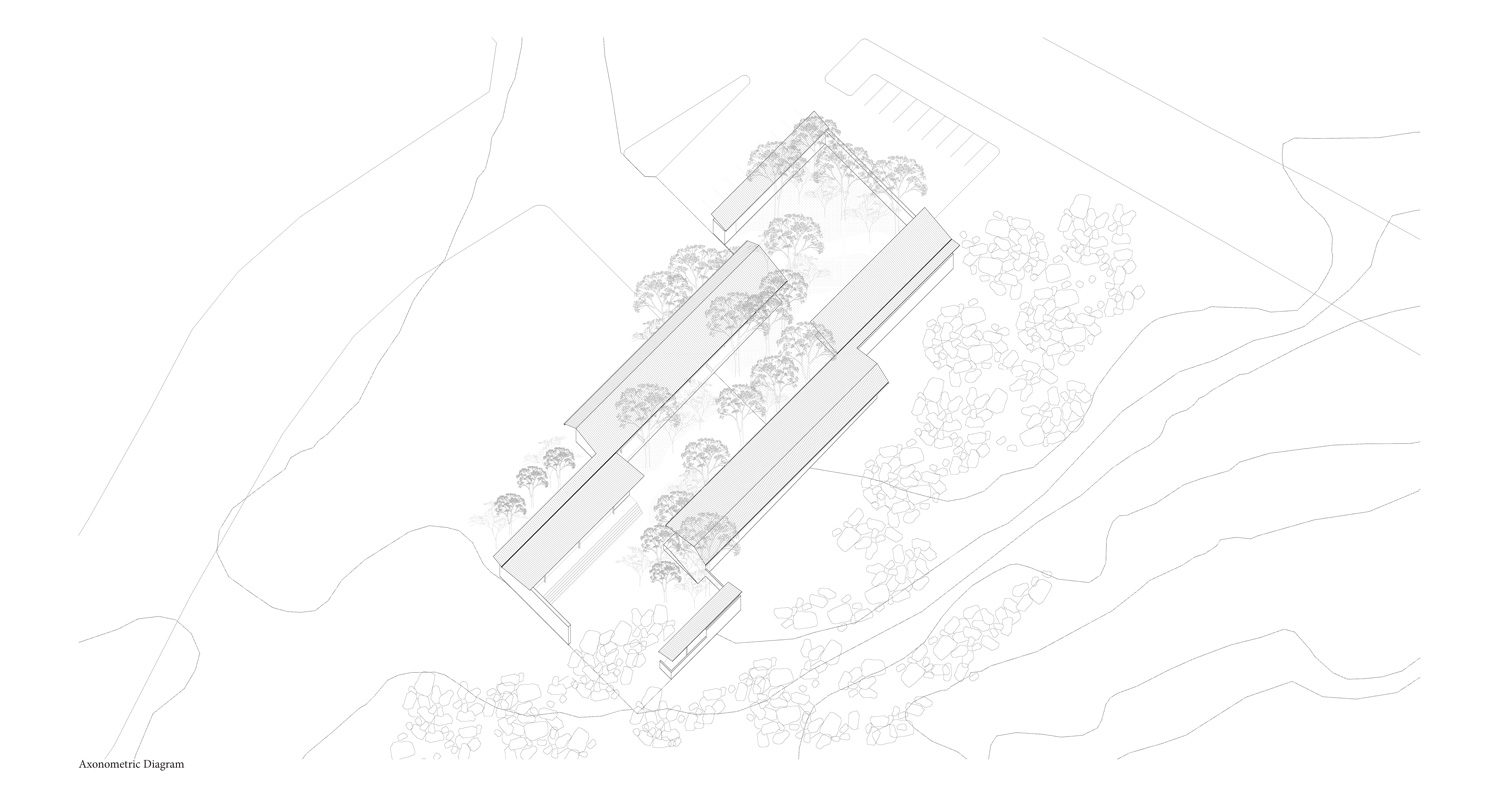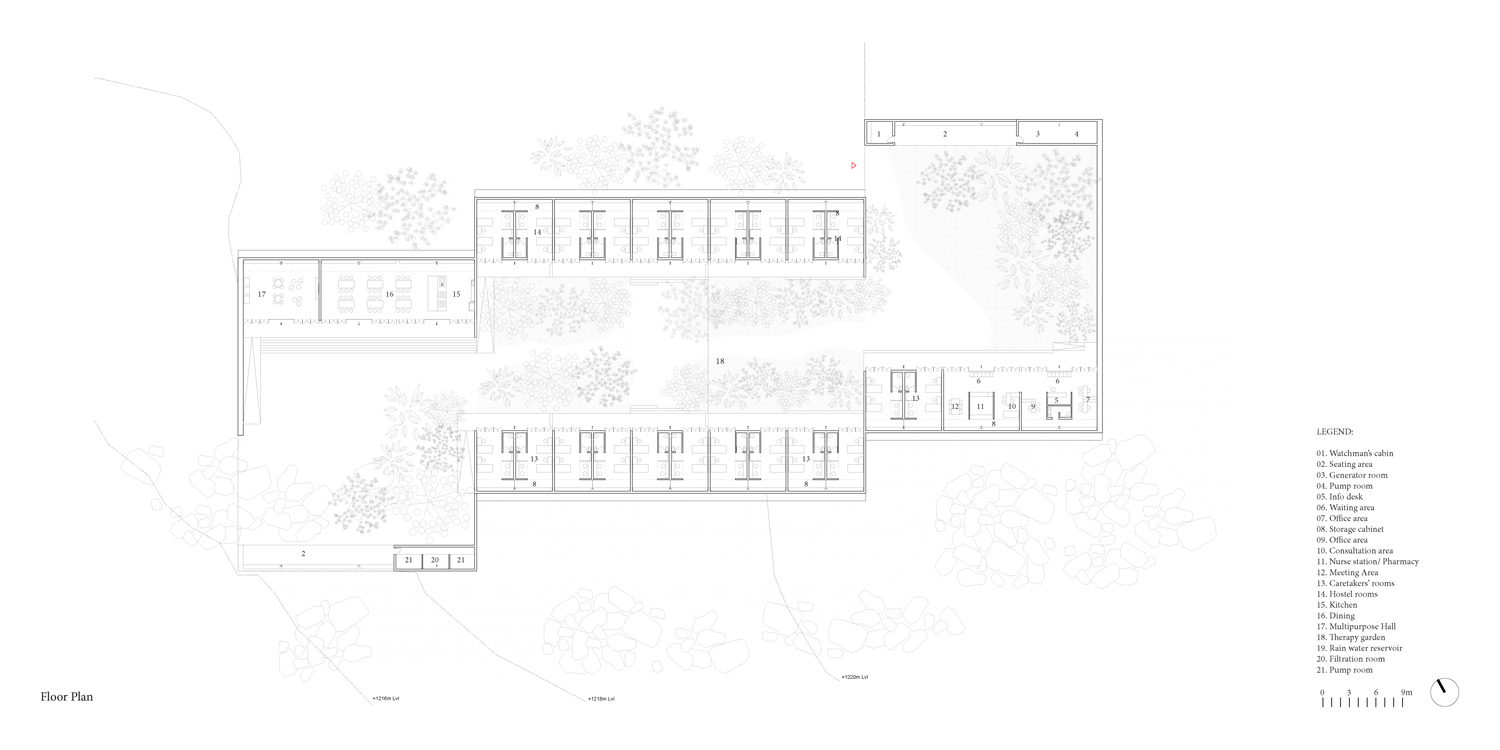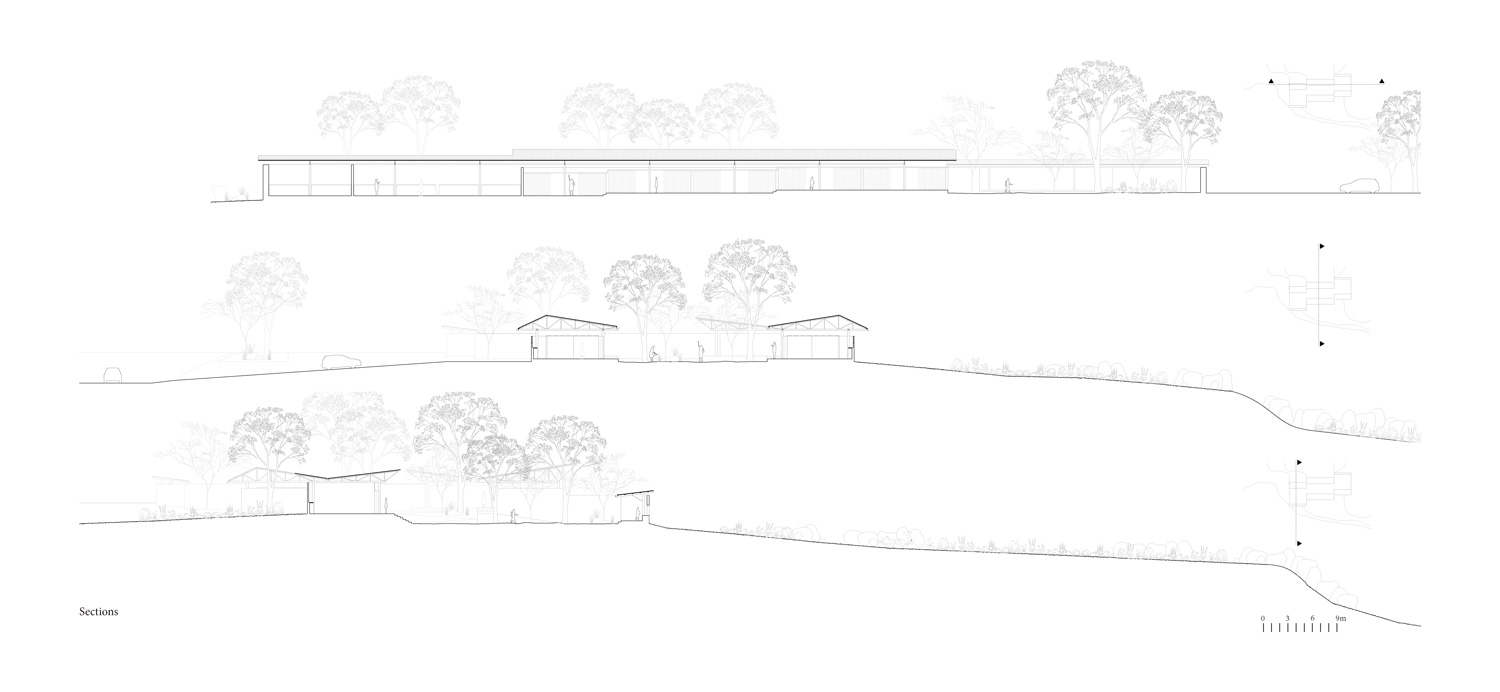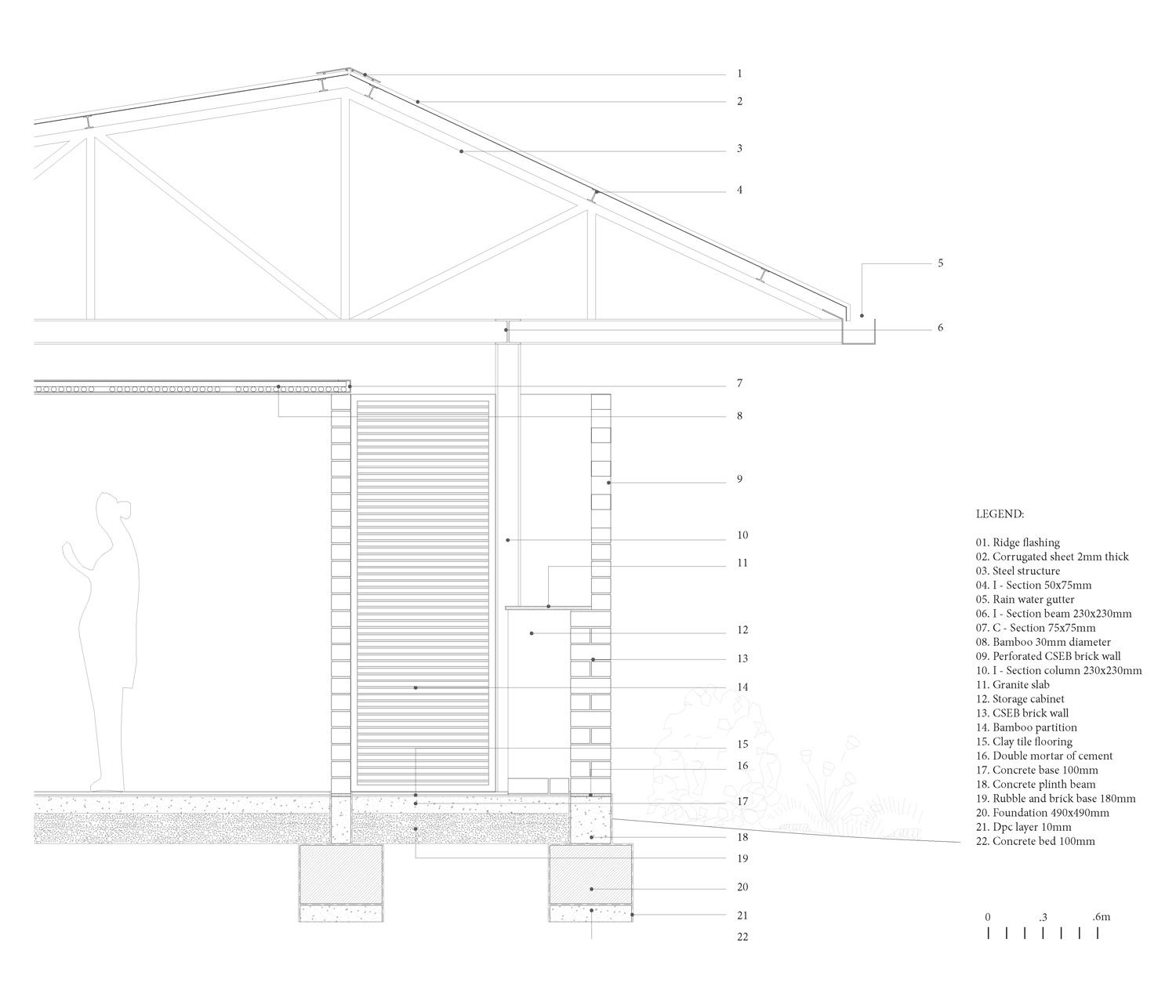☉ Hostel for Hope is a proposal by Mani Kandakatla Vamsi Krishna Niharika Sanyal Rishitha Suravarapu and Carlos Gonzalvo for Pink Ribbon | Red Ribbon in 2016. It is located in Mwanza Tanzania in a seaside and rural setting. Its scale is medium. Key materials are brick and metal.
The vastness of this site in Mwanza, on a rocky hill overlooking Lake Victoria, exists in striking contrast with the protected environment suggested by a hostel programme for cancer patients. In the neighbouring context, linear volumes are situated parallel to the land’s gradient, usually on flatter portions of the land on higher altitude. This appears to us an appropriate topographical strategy, along with their climate responsive proportions and orientation.
Taking cues from these, our proposal imagines two linear volumes opposite each other that define ‘limits’ for a series of gardens. This idea emerges from the aforementioned duality between the site and our programme, so that a series of enclosed gardens may hold, contain and protect their inhabitants, whilst gradually unfolding towards the panoramic vista. The buildings are therefore seen as a series of habitable ‘walls’ that strive to enhance the true protagonist of the project – a therapy garden as a ‘hortus conclusus’ – a space that provides simultaneously for communion as well as solitary contemplation.
These gardens are staggered to negotiate the rocky landscape, in the process creating interstitial spaces. The resultant diagonal connection that is established across the terrain suggests possibility for future expansion. Together, the enclosed gardens create a quiet cloister in which the women may rest and recover from their treatment.
As the ‘walls’ descend across the sloping terrain, they release the garden organically towards the west corner of the site that overlooks the vast Lake Victoria. In this last courtyard, the earthen walls give way to natural rock formations, which create a notional boundary. This overall passage towards the landscape creates dual experiences of protectedness and openness. Light floating roofs held above these thick habitable ‘walls’ further accentuate this duality. Where they are turned upwards, they draw in the community. And where they are turned downwards, they create intimate scales for the residential courts. Overall, the low-lying buildings lend a domestic scale.
Tending to plants in the garden may serve as a therapeutic activity. Additionally, the garden can be opened up to the neighbourhood children over the weekends. The series of walls can double up as spaces for painting. This may catalyse a cycle of interaction with the larger community, generating activity in an otherwise reclusive hostel programme. By envisaging landscape as a focal point of our proposal, the project imagines a harmonious relationship between nature, architecture and people. Parallel to recognising the impact that a garden may have on the collective psychology, activities and relationships in a community, the project strives to support in a creative way the urgent reforestation efforts that are taking place in Mwanza at present.
